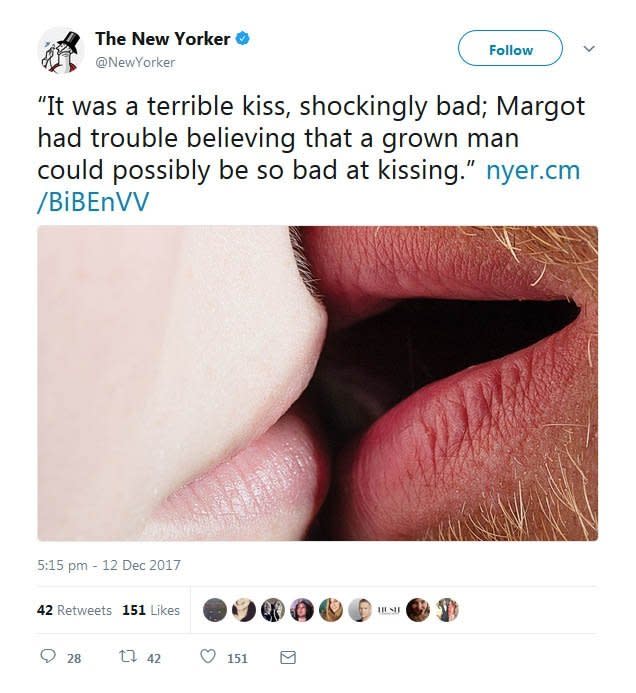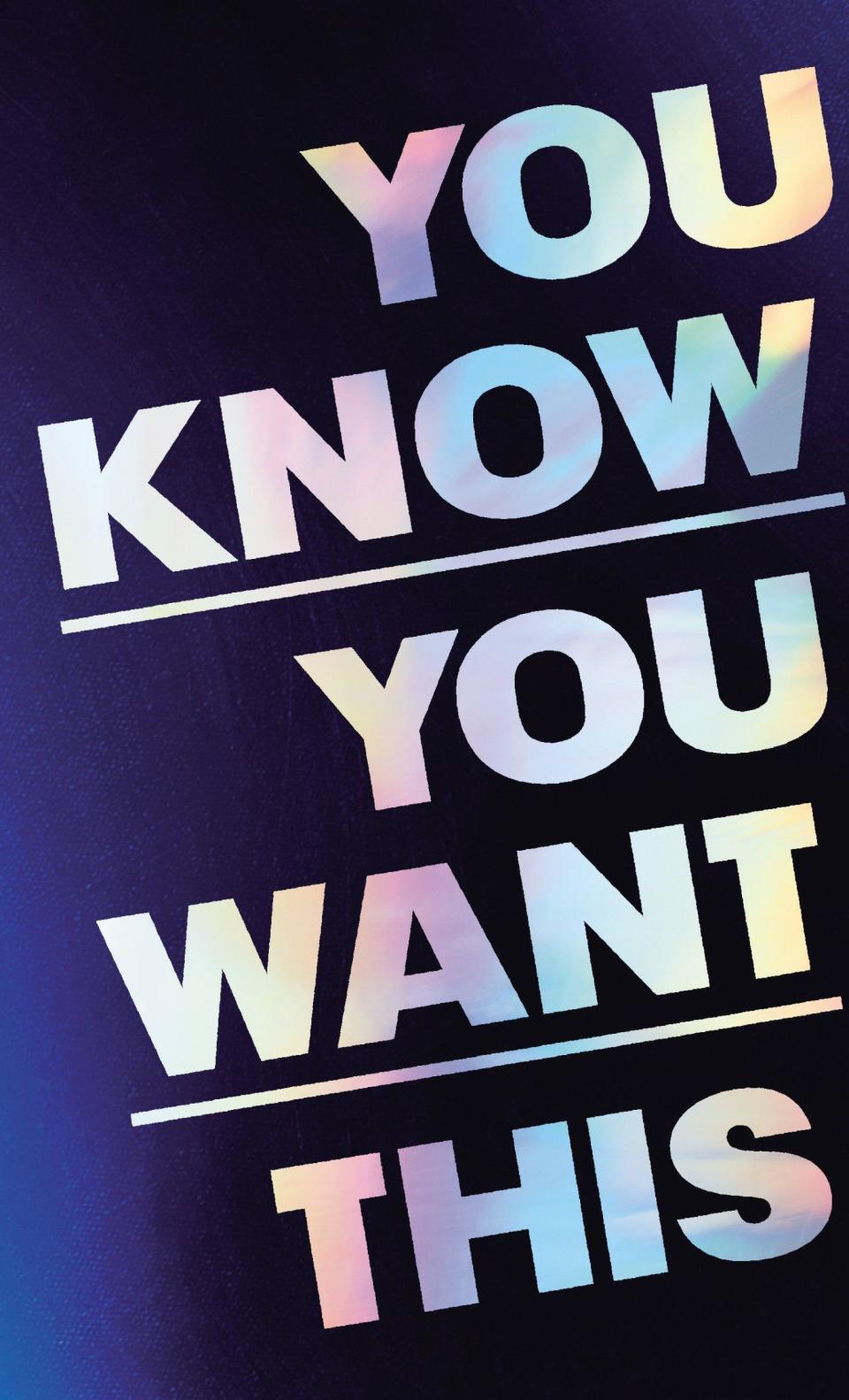What Cat Person did next
If you live or work in any of the hipper parts of south London, prepare to be assaulted next month by the sight of bright shiny foil-covered billboards declaring “You Know You Want This” in huge letters. They’re just a small part of one of the biggest publicity campaigns ever mounted for a book of short stories — Kristen Roupenian’s debut collection of the same name.
Roupenian, in case you missed it, is the 37-year-old American author whose short story, Cat Person, went viral when it came out online and in print in The New Yorker magazine on December 4 2017. It has already been read more than 4.6 million times and resulted in Roupenian landing a lucrative pub-lishing deal on both sides of the Atlantic and a HBO series — yet to be made — for a collection of 11 further short stories she had written before she wrote Cat Person. What seemed to many to be a competently written if unremarkable read about the naivety and callousness of youth — 20-year-old college student Margot hooks up with 34-year-old podgy, bearded Robert and after two dates has what he considers great, and she considers terrible, sex, before an awkward break-up — turned into a talking point almost overnight.
Why? For young women dating in the digital age it chimed with almost every bad date they had ever been on, while young men squirmed. Couples argued over whether Roupenian’s writing was serious or comic, and whether it was Margot or Robert who was most at fault. Millennial feminists raged in Margot’s defence — was the sex even consensual? — others condemned her for not being prepared to tell the truth about her feelings. Everyone had an opinion.
In essence a fable about the way straight men and women continue to misunderstand each other in the sexual arena, Cat Person hit the zeitgeist, coming as it did in the wake of the Weinstein scandal and the birth of #MeToo. Instantaneously amplified by social media, everyone clamoured to share, like and comment. Within days, there was even a Twitter account, Men React to Cat Person, set up by 27-year-old writer Anna Fitzpatrick, who claimed, predictably, that many of the men’s online posts seemed to “completely miss the point”. Touché!
Read more
The best books to look forward to in 2019
Roupenian later announced that while the story was inspired by “a small but nasty encounter” she’d had with a man she had met online, it wasn’t her story. She also revealed that after an almost seven-year-long engagement followed by years of bad dates, she was in a relationship with another woman, fellow writer Callie Collins, with whom she now lives in Ann Arbor, Michigan.
In May, after the noise had died down, Cape, Penguin Random House’s most literary imprint, decided, bizarrely, to publish Cat Person as a standalone paperback, having snapped up the entire collection for a pre-emptive five-figure sum just weeks after The New Yorker victory, while in the US, Roupenian clinched a seven-figure deal for the collection and a novel, yet to be published.
Adroitly kick-started by Roupenian’s article in last Thursday’s The New Yorker: What It Felt Like When Cat Person Went Viral, the publicity beast is now beginning to stir once more.
“The levels of interest from the press have been unlike anything I’ve ever experienced for a short-story collection. And that’s been going on for nearly a year,” says Joe Pickering, Cape’s publicity director. “So it was obvious we needed to do a massive campaign.”

Roupenian, who was born in Plymouth, Massachusetts, the eldest of three, and studied at the University of Michigan, arrives in London on February 4 for a jam-packed publicity schedule. Interviews with lifestyle websites and live podcast events that have already sold out are just part of Pickering’s carefully orchestrated campaign, along with tote bags and billboards, to target a social media-savvy audience.
He says: “Young people are the holy grail of publishing and the hardest to reach. Cat Person became successful through people sharing it online, which has showed us these potential new ways to reach them.” Even the title, You Know You Want This, is a gift, he adds, which isn’t to say that he doesn’t think the book is serious, “with ambitious literary chops”.
Her writing here is sharp and pitiless, and these stories show beyond a doubt that she is not a one-trick pony.
The title comes from a line in Bad Boy, the opening story, about a friendship gone sour that makes Cat Person look tame. The bad boy in question is reduced to becoming a submissive masochist when his friends, a couple, begin to abuse him, “with pain and bruises, chains and toys”, eventually goading him into avenging himself in the most transgressive way possible.
Good Guy is another tale of male sexual ineptitude and creepy self-loathing which has this memorable opening line: “By the time he was 35, the only way Ted could get hard and remain so for the duration of sexual intercourse was to pretend that his dick was a knife, and the woman he was fucking was stabbing herself with it.”

But women don’t get off lightly either. In Sardines, a woman organises her daughter’s birthday party at her ex-husband’s house, and has to contend with his new girlfriend. The daughter wants to play sardines and sends The Girlfriend to hide in the forest; she is joined one by one by the other girls, eventually turning into “a monster that drools and spasms and suffers...” The Matchbox Sign strides straight into Alien territory when a woman develops an itch on her arm that turns out to be a sinister parasite. The stories, a mix of schlock horror and dark fairytales layered with sexual mores, are toe-curlingly nasty at times, and owe more to writers such as Shirley Jackson and Joyce Carol Oates than to the new wave of post#MeToo fem-lit; they will also appeal to fans of modern horror movies such as Get Out and It Follows.
The biggest influence, however, is Roupenian’s literary hero, Stephen King. Apparently “enthralled” at the age of four by the cover of her mother’s copy of Pet Sematary, she read King’s seminal screamer when she was 11 and had nightmares for years. “To be 11 is to live the horror novel,” she has said. “Everyone knows that female adolescence is horror, all about discovering what power is.”
And indeed learning how to manipulate the scales in one’s favour between power and powerlessness, torturer and victim, controller and controlee, is the very thing that seems to fascinate Roupenian still.
She knows that discovering — and wielding — power can turn us into monsters. All of us, that is, men and women both.
Does this have the miaow factor? Our verdict
The target audience
Predictably, as a 28-year-old woman, I became a zealot of the cult of Cat Person; in the parlance of the Gen Y feminist, “it spoke to me.” The rest of You Know You Want This did not. The collection is grotesque but the macabre lacks any meaning. In fact, many of the stories — about a disturbed children’s party, say, or the fable about a queen who falls in love with a bone — failed to say much at all. The collection didn’t send a chill up my spine so much as make me want to toss the book across the room; after three stories on the trot I reverted to an episode of The OC to calm down. - Phoebe Luckhurst
The literary editor
Cat Person reads differently in the context of this collection than it did in the literary setting of the New Yorker.
On its own, it seemed such a realistic description of a bad date turning into worse sex, through embarrassment, misunderstanding and possible coercion. But remember Margot getting into Robert’s car and thinking “he could take her some place and rape and murder her; she hardly knew anything about him, after all”? And actually saying, “It’s okay — you can murder me if you want”?
Nothing fatal happens in Cat Person but most of the stories here do turn violent. They make it clear Roupenian’s gift is not finely calibrated disturbances between the sexes as for full body horror. The Good Guy almost sympathetically tries to imagine how a middle-aged dating creep could get that way but her heart’s not in it. It’s the beaters and the biters that she loves. - David Sexton

 Yahoo News
Yahoo News 

